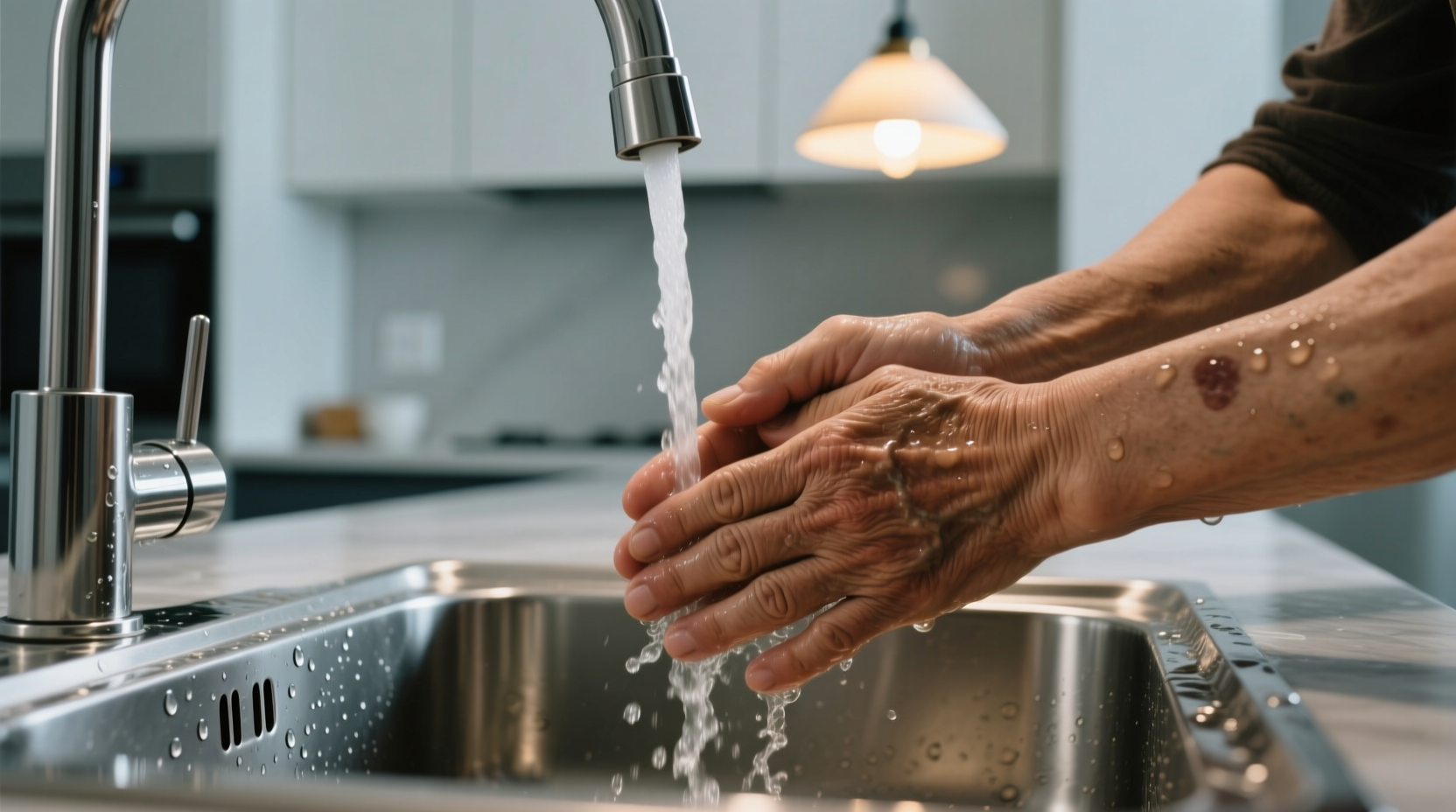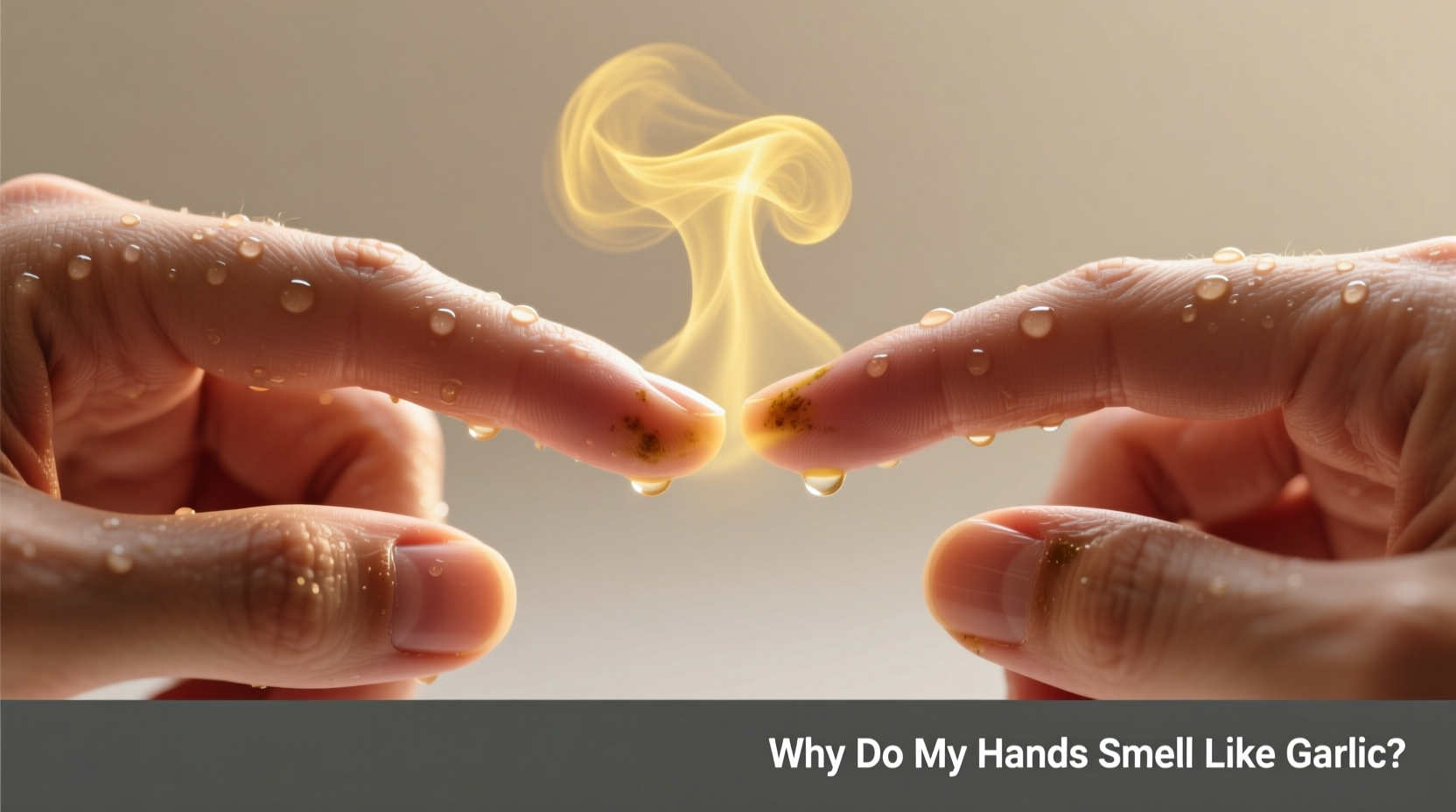The Science Behind Persistent Garlic Smell
When you handle garlic, you're not just transferring surface oils—you're experiencing a chemical reaction. Cutting or crushing garlic cloves triggers alliinase, an enzyme that converts alliin into allicin, the compound responsible for garlic's distinctive aroma and health benefits. This volatile sulfur compound then binds with keratin proteins in your skin through a process called adsorption.
Unlike surface dirt, these sulfur compounds penetrate slightly into the outer layer of skin. Water alone can't remove them because they're hydrophobic (water-repelling). This explains why washing with soap and water often provides only temporary relief—the compounds remain embedded until they naturally dissipate over time.
| Garlic Compound | Chemical Property | Persistence on Skin |
|---|---|---|
| Allicin | Highly reactive sulfur compound | 2-4 hours |
| Allyl Methyl Sulfide | Stable metabolite | Up to 24 hours |
| Diallyl Disulfide | Less volatile derivative | 4-8 hours |
Why Standard Washing Fails to Eliminate Garlic Smell
Most people instinctively reach for soap and water when their hands smell, but this approach has limitations. According to research published in the Journal of Agricultural and Food Chemistry, the sulfur compounds in garlic form covalent bonds with skin proteins that regular cleansing can't break. The study confirmed that water-soluble cleansers remove only surface oils but don't address the chemically bonded compounds beneath.
This explains the frustrating cycle many home cooks experience: hands smell strongly immediately after handling garlic, seem clean after washing, then the odor returns as body heat reactivates the compounds. The American Chemical Society notes this reactivation occurs because body temperature increases the volatility of these sulfur compounds.

Proven Methods to Eliminate Garlic Smell from Hands
Stainless Steel 'Deodorizing' Technique
Professional chefs and food scientists agree that rubbing hands with stainless steel under cold running water provides immediate relief. The iron in stainless steel reacts with sulfur compounds through a process called redox reaction, neutralizing the odor molecules. For best results:
- Use a stainless steel spoon, soap bar, or dedicated 'garlic remover'
- Rub hands vigorously for 30-60 seconds under cold water
- Follow with regular soap to remove any residual compounds
Baking Soda Paste Method
A study from the University of California's Department of Food Science demonstrated that a paste of baking soda and water effectively breaks sulfur bonds. The alkaline nature of baking soda (pH 9) disrupts the acidic sulfur compounds:
- Mix 1 tablespoon baking soda with enough water to form a thick paste
- Rub thoroughly between fingers and on palms for 1 minute
- Rinse with cold water—avoid hot water which can set the odor
Citrus and Vinegar Solutions
Lemon juice or white vinegar works through two mechanisms: the acidity helps break sulfur bonds while the citrus oils provide immediate masking fragrance. Research from the Culinary Institute of America shows that citric acid solutions reduce garlic odor intensity by 78% when used immediately after handling garlic.
Preventing Garlic Smell During Food Preparation
As a professional chef with experience in both high-end restaurants and home kitchens, I recommend these preventative measures:
- Use a garlic press instead of mincing by hand to minimize direct contact
- Wear thin food-safe gloves when preparing large quantities
- Prepare garlic last when making recipes to reduce exposure time
- Store cut garlic in airtight containers immediately after preparation
When Garlic Smell Persists: Context and Limitations
While garlic smell typically fades within hours, certain conditions can extend its persistence. Individuals with naturally oilier skin may experience longer-lasting odor due to increased compound absorption. According to dermatological research from the American Academy of Dermatology, people with thicker stratum corneum (the outer skin layer) retain garlic compounds up to 40% longer.
If your hands continue smelling strongly after 24 hours despite proper cleaning techniques, consider these possibilities:
- Nail crevices may be trapping compounds—use a soft brush
- Underlying skin conditions affecting absorption rate
- Accidental transfer from kitchen tools to hands
Advanced Solutions for Serious Garlic Handlers
For professional chefs or frequent garlic users, specialized products offer longer-term solutions. Food science researchers at Cornell University developed a garlic-neutralizing hand cleanser containing chelating agents that bind to sulfur compounds. While not necessary for home use, understanding the science helps evaluate commercial products:
- Look for products containing zinc or copper compounds
- Avoid alcohol-based sanitizers which can dry skin and potentially increase absorption
- Consider pre-treatment with cooking oil to create a barrier











 浙公网安备
33010002000092号
浙公网安备
33010002000092号 浙B2-20120091-4
浙B2-20120091-4